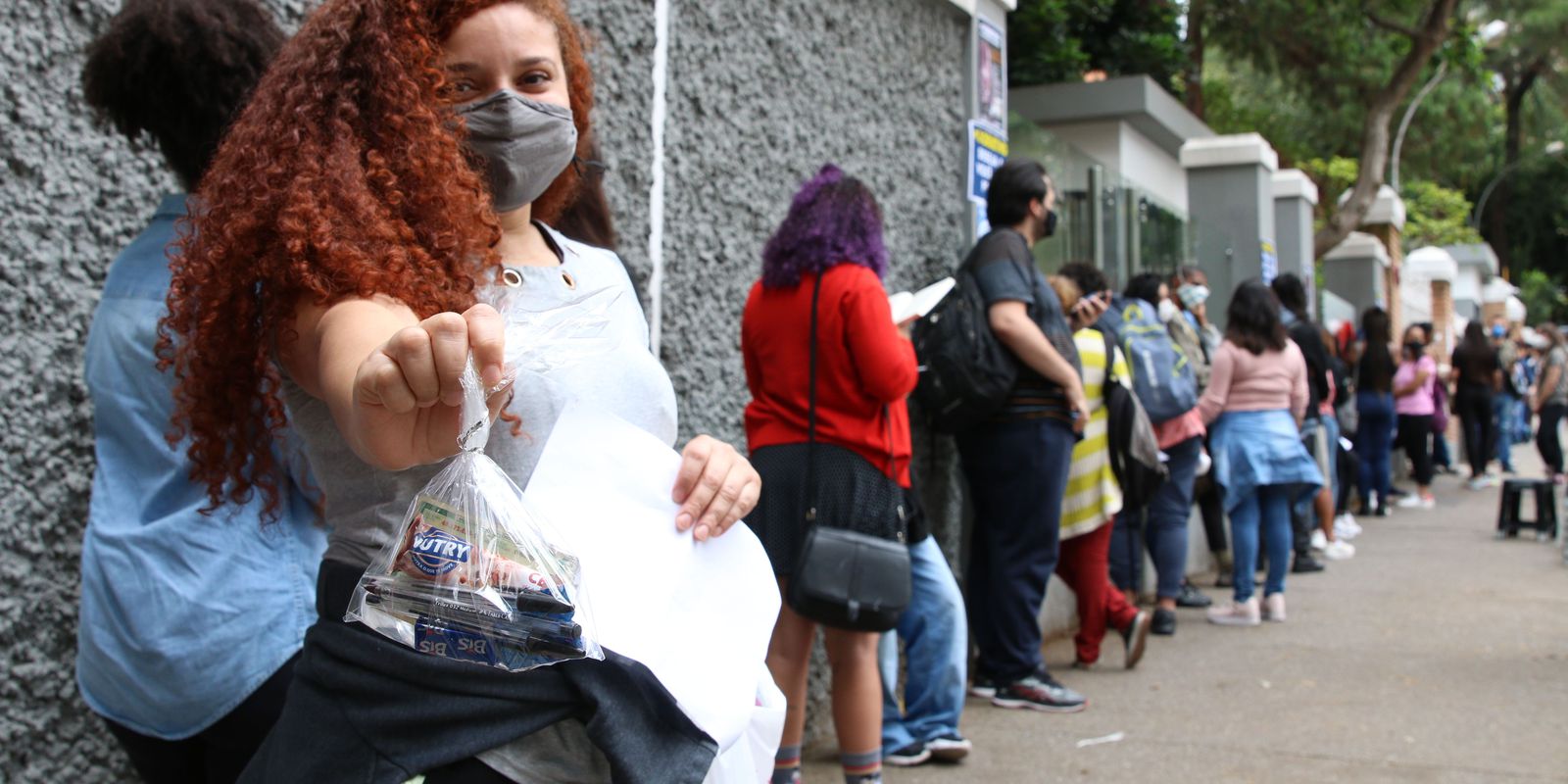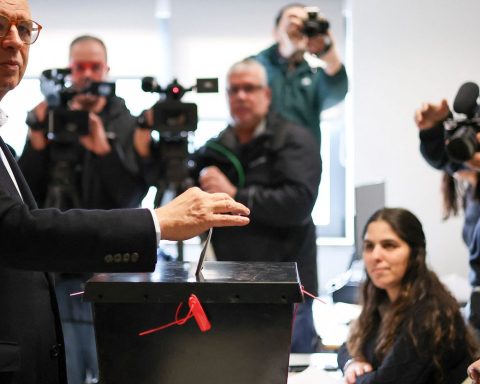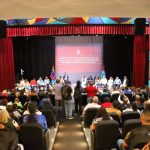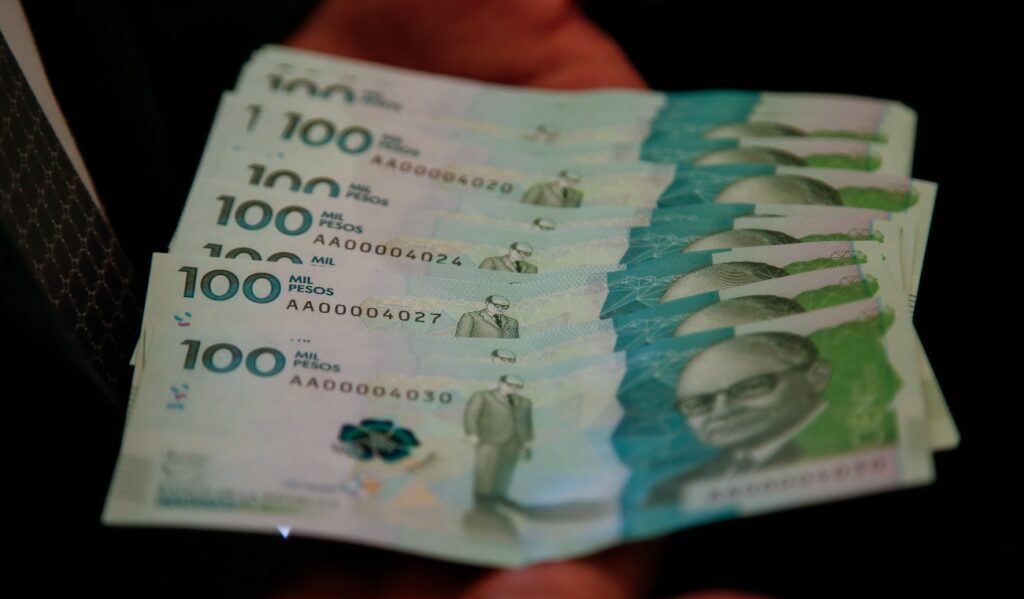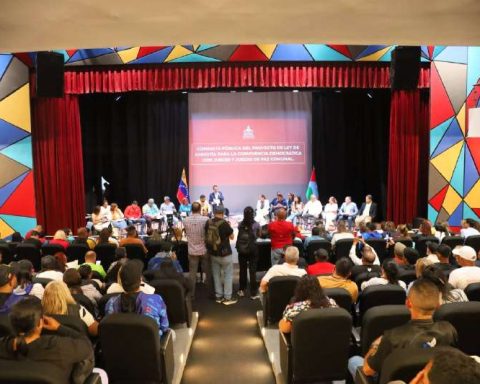The decisive time is approaching for students who will compete, through the National High School Exam (Enem), for a place in the country’s colleges and universities. In this final stretch, it is very important that candidates are aware of the places where they will take the tests and the documents necessary for identification.
The Enem will be applied on November 13th and 20th to about 3.4 million students across the country. On the first day, participants will take language, human sciences and writing tests. In the second, mathematics and natural sciences.
test site
The place where the test will be taken is on the Registration Confirmation Card, in the Participant’s Page??
The gates will open at 12:00, and access to the exam rooms will be allowed until 13:00. Students will have five and a half hours to answer all questions.
Candidates are advised to schedule in advance to plan the trip, in order to avoid delays.
Documents
According to the announcement, for identification, participants must present original documents, with photo. Among the identifications accepted are the Identity Card, the National Driver’s License (CNH), the passport and the Work Card, provided that it is issued after January 27, 1997.
In this edition, digital documents e-Título, digital CNH and digital ID will be accepted, provided they are presented in the respective official applications. It is also recommended that you also bring the Registration Confirmation Card.
Pen, devices, clothing
It is also necessary to be aware of what is allowed at the test site, so as not to run the risk of being eliminated from the exam.
The black ink ballpoint pen, made of transparent material, is a mandatory item for all candidates, including those who compete for the digital Enem, since the writing will be done on paper and not on the computer, like the rest of the test.
Candidates may not carry, during the exam, any electronic device, such as cell phones, smartphones, tablets?? wearable techcalculators, electronic organizers and/or similar, recorders, pen drive, mp3 and/or the like; alarms, alarm switches or any other electronic component.
Cell phones must be turned off, because if the electronic device, even inside the object-holder envelope, emits any type of sound, such as ringing or alarm, the participant will be excluded from the exam.
Candidates cannot have headphones and/or any transmitter, recorder and/or receiver of data, images, videos and messages. Also considered “prohibited items” are sunglasses and headgear, such as caps, hats, visors, caps or similar items; non-transparent material pen, pencil, mechanical pencil, erasers, rulers, correctors, books, manuals, printed matter, notes; ear protector, watch of any kind.
These objects, if the student takes them to the exam, must be placed inside the object-holder envelope provided by the applicator, when entering the exam room.
The envelope must be sealed and identified, from entering the room until leaving the place. If the participant fails to comply with these rules, he/she may be eliminated from the exam.
Mask, snack and water
Although not mandatory, it is recommended that participants bring snacks, water and/or other beverages, with the exception of alcoholic beverages, which are not allowed and may lead to the candidate’s elimination.
In the last two editions of Enem, because of the covid-19 pandemic, the use of a face protection mask was mandatory. Now, use is still allowed, but it is no longer mandatory in states and municipalities where it is allowed in closed places.
statement of attendance
If they need to prove that they attended the exam, students can, on the Participant’s Page, print the Declaration of Attendance for each day of the test, informing the CPF and password.
The declaration must be presented to the applicator at the door of the room, on each of the days. It serves, for example, to justify absence from work. According to Inep, the Declaration of Attendance must also be placed inside the object-holder envelope.
Results
Enem selects students for public higher education vacancies, through the Unified Selection System (Sisu), for scholarships in private institutions, through the University for All Program (ProUni), and serves as a parameter for the Student Financing Fund (Fies).
The results can be used to enter Portuguese educational institutions that have an agreement with the National Institute of Educational Studies and Research Anísio Teixeira (Inep).
Those who are preparing for the Enem can access all tests and feedback from previous editions on site from Inepto prepare for the exams.
To test their knowledge, students can access the free Enem questionsa bank prepared by the Brazil Communication Company ??EBC), which gathers exam questions from previous years.
